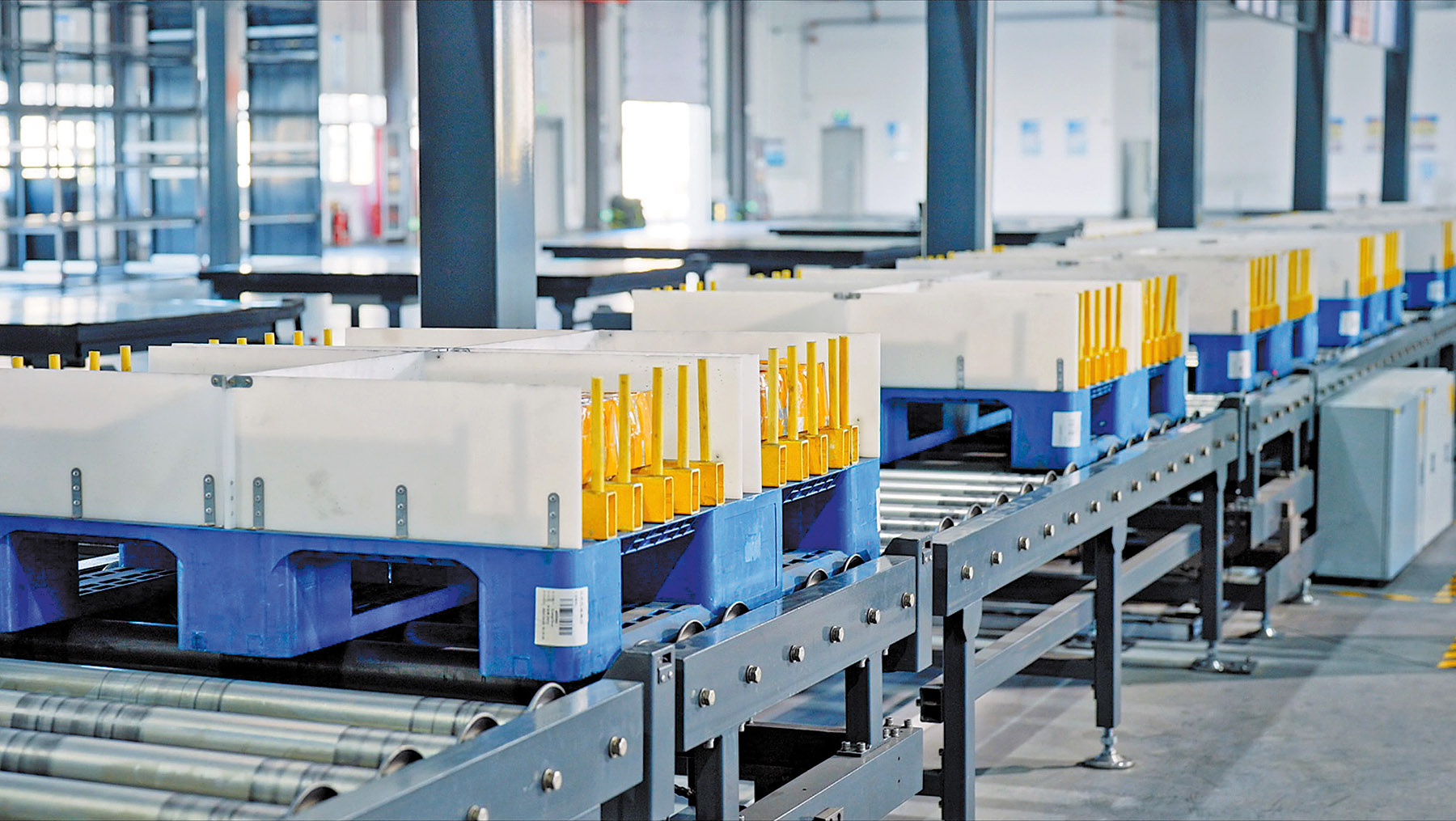
China's rapidly growing electric vehicle market is providing major opportunities for battery recyclers who are adding to the industry's green credentials.
In the production workshop of Battery Science & Technology in Tianjin, old EV batteries undergo a transformation when they arrive. Through dismantling, crushing, and purification, over 95 percent of lithium elements are extracted and turned into new battery materials.
"Black powder is a key material in battery recycling, accounting for about 63 percent. It can be used to extract raw materials like lithium carbonate and lithium iron phosphate," said Fu Qiang, president of Battery Science & Technology, which was founded in 2020.
The company processes 10,000 metric tons of waste batteries annually, producing around 6,000 tons of black powder, from which about 130 tons of lithium carbonate can be extracted, he said.
READ MORE: 'Urban mining' of waste energizes circular economy
"For recycled power batteries, we first dismantle them, then crush them to produce black powder — a powdery material containing valuable metals like nickel, cobalt, and lithium. We also recover reusable nonferrous metals like copper and aluminum," Fu said.
In the workshop, new energy vehicle battery packs — typically weighing 120 kilograms and taken from underneath the vehicle — are sorted upon arrival.
Those with intact structures are repurposed for lighting, low-speed EVs, tools, and toys, while damaged ones are dismantled and crushed to recover materials like copper, and aluminum.
"Our battery recycling process achieves a material recovery rate of over 90 percent, with lithium-to-lithium carbonate recovery nearing 95 percent, far exceeding European Union standards. The purification and recycling technologies were independently developed in China," Fu added.
According to Fu, there are three main methods for producing lithium carbonate — the raw material for battery electrodes.
However, recycling the black powder released from spent batteries and recovering lithium carbonate is the best green approach, he said. "During processing, the carbon emissions per unit of lithium carbonate can be cut by 30 percent, so it better meets low-carbon requirements and offers a clear advantage," he said.
The volume of lithium batteries in circulation on the Chinese market reached 1,300 GWh in 2024, Fu said.
"It is expected that a peak in battery retirement will occur in 2026, with an annual increase of 30 GWh thereafter. Based on projections, by 2040 China will be able to achieve self-sufficiency in lithium through the recycling and reuse of these waste batteries," he said.
ALSO READ: China's EV battery recycling boom fuels green transition, taps global market
The company uses automated and mechanized processes to avoid safety hazards associated with manual operations, and has invested more than 200 million yuan in environmental protection facilities.
Tianjin Battery Science &Technology has cooperated with EVE Energy Co in Huizhou, Guangdong province, to build a factory in Europe. In the future, it hopes to cooperate with foreign companies to optimize the technology for purifying lithium carbonate from black powder, Fu said.
The company is located in China's first national-level economic development zone in Tianjin. The circular economy park has four major sectors: scrapped vehicle dismantling, waste appliance recycling, used battery processing, and high-end material separation and manufacturing.
Bao Yan contributed to this story.


